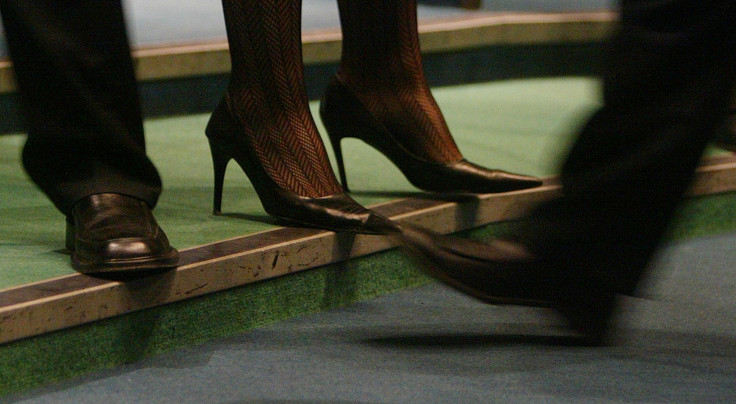Are Businessmen Sexist? Executives Twice As Likely To Discriminate As Other Men

Nearly half of U.S. business owners surveyed say men were more capable than women, and more than 40 percent say women were inferior to men, an Ipsos poll indicates, highlighting a striking divide between the prevalence of sexist attitudes among business leaders and the general male population.
The poll, which was published Tuesday, indicated 47 percent of U.S. business owners, including 45 percent of senior executives, answered "agree very much" or "agree somewhat" to the statement: "I believe that men are more capable of doing things in society such as working, earning money, being educated and teaching than women." Only 22 percent of total respondents agreed with that statement, and only 28 percent of the overall male population agreed with the statement.
Sexist attitudes among business owners and senior executives were on display in responses to other questions as well. In response to the statement: "I believe that women are inferior to men," only 17 percent of the population and 21 percent of men agreed or somewhat agreed. But 43 percent of business owners and 40 percent of senior executives agreed or somewhat agreed.
The poll, which surveyed 1,001 adults in the U.S. Jan. 20-Feb 3., did not divide responses from business owners or senior executives into gender categories, so it's hard to know if a greater percentage of men in ownership and leadership positions contributed to those groups' more sexist responses. But according to the National Association of Women Business Owners, women-owned businesses account for 31 percent of all privately held firms in the U.S. In 2015, women held 51.5 percent of all management, professional and related occupations, according to Catalyst, a nonprofit that promotes women in the workforce. But Catalyst also found that women make up just 25 percent of senior-level officials and managers at S&P 500 companies.
So while men do make up a higher percentage of business owners and senior executives than women, that alone can't explain the group's belief in the inherent superiority of men. Men as a whole are much less likely to agree with sexist statements than business owners. In fact, the general male population was much closer to women in their responses. For example, 13 percent of women agreed that men are superior to women, compared to 21 percent of men, 40 percent of senior executives and 43 percent of business owners.
The results show what women in the workforce have been saying for years: While sexism is a problem across society, it is especially pernicious in the workforce.
© Copyright IBTimes 2025. All rights reserved.






















